Does Sparkling Water Hydrate You? Nutrition & Health Benefits 2024
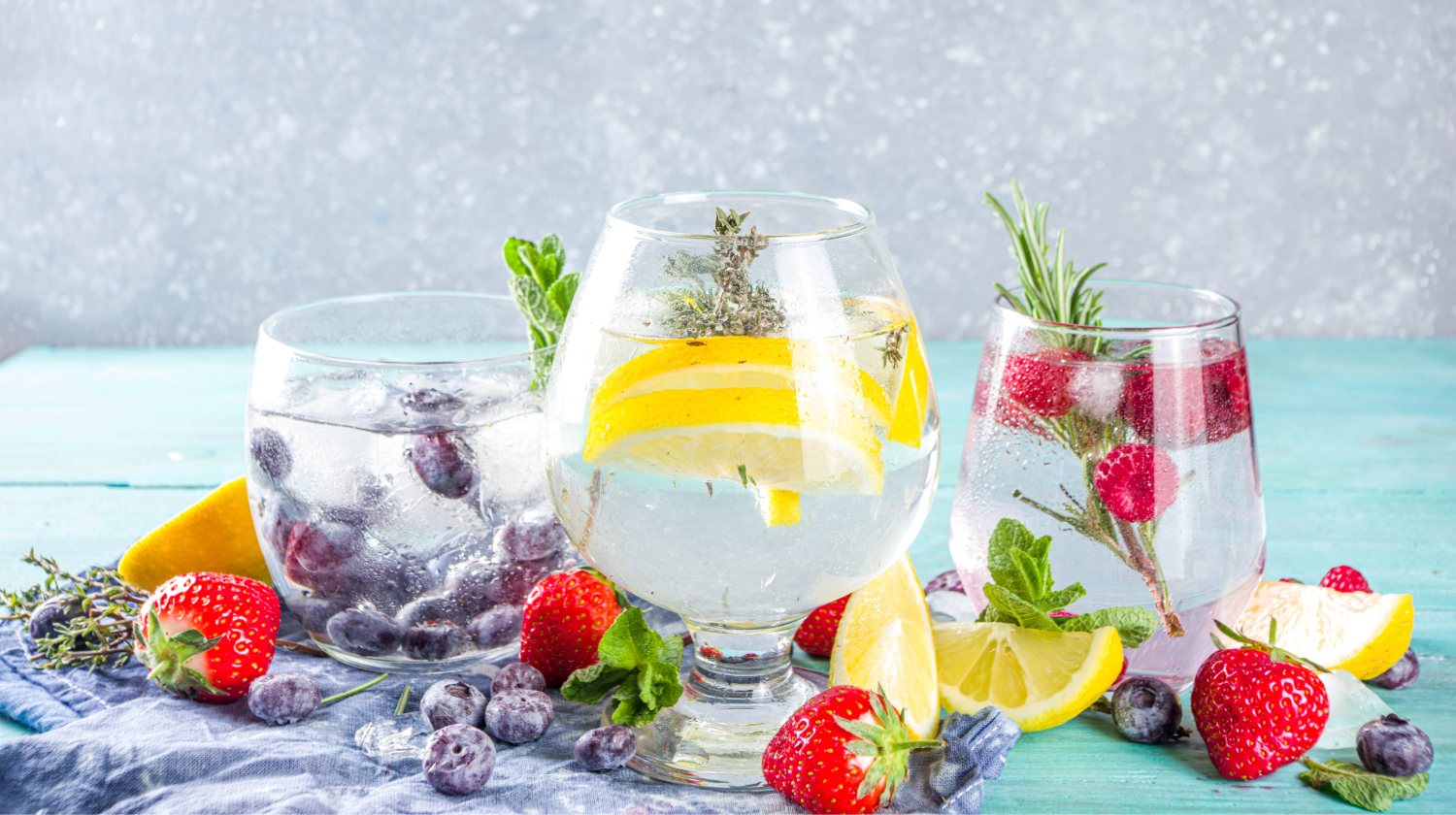
Since 2017, the amount of sparkling water Americans are drinking has increased by 42%! Per PepsiCo,[1] Americans now consume about one hundred and seventy gallons yearly of sparkling water.
Sparkling water — also termed carbonated water or seltzer water — is growing exponentially in popularity, and it doesn’t show any signs of slowing down. Many people think its popularity is because it is a healthier alternative to alcohol and soda, while others find it simply more exciting than water.
Whatever the case, sparkling water leads us to a few questions, such as does sparkling water hydrate you? And is sparkling water good for you? Read on to learn the answers to these questions and others.
Does Sparkling Water Hydrate You?
You can achieve hydration with sparkling water. And hydration is essential for not only your physical health but your mental health as well. Dehydration can lead to a variety of negative[2] things, such as:
- Dry mouth.
- Fatigue.
- Dizziness.
- Altered brain function.
- Fast pulse.
- Mood swings.
Researchers[3] have developed a way to determine common beverages’ hydration levels by using a beverage hydration index. In this type of scientific computation, fluid hydration status is determined by dividing the amount of urine collected, after ingesting still water, by the urine collected after each test beverage.
A larger number on the beverage hydration index means the beverage is very hydrating, whereas a lower score means it is not very hydrating. On the BHI scale, still, water and sparkling water were both equivalently hydrating. However, this is not a huge surprise, as sparkling water is simply sill water with added carbonation.
So based on scientific research, plain and carbonated water are equally hydrating and thus contribute to your overall hydration throughout the day. Of note, per the Academy of Nutrition and Dietetics,[4] men should consume 3.7 liters of water daily, whereas women should drink 2.7 liters daily. Given that sparkling water is included in these figures, this should make meeting your hydration needs even more manageable.
What Is Sparkling Water?
As mentioned above, sparkling water is still water with added[5] carbon dioxide bubbles. Carbon dioxide makes the water fizzy and slightly more acidic than still water. Remember that some sparkling water contains other additives such as artificial and natural flavorings, minerals, and sodium. Some types[6] of carbonated beverages include:
Seltzer
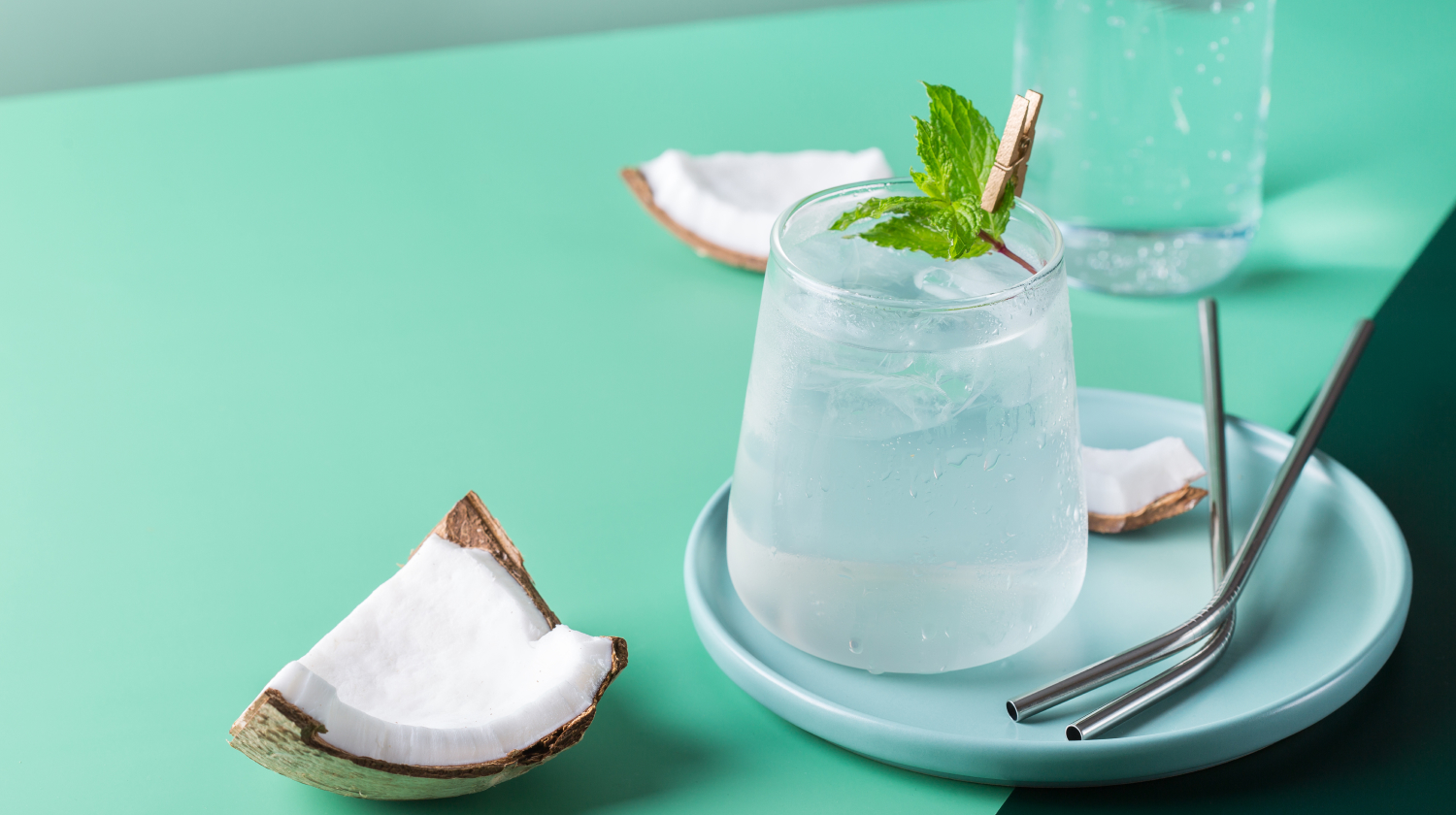
Seltzer or sparkling water is created from filtered water with added pressurized carbon dioxide. Therefore, if you were to remove all of the bubbles in seltzer water, you would be left with plain water.
Mineral
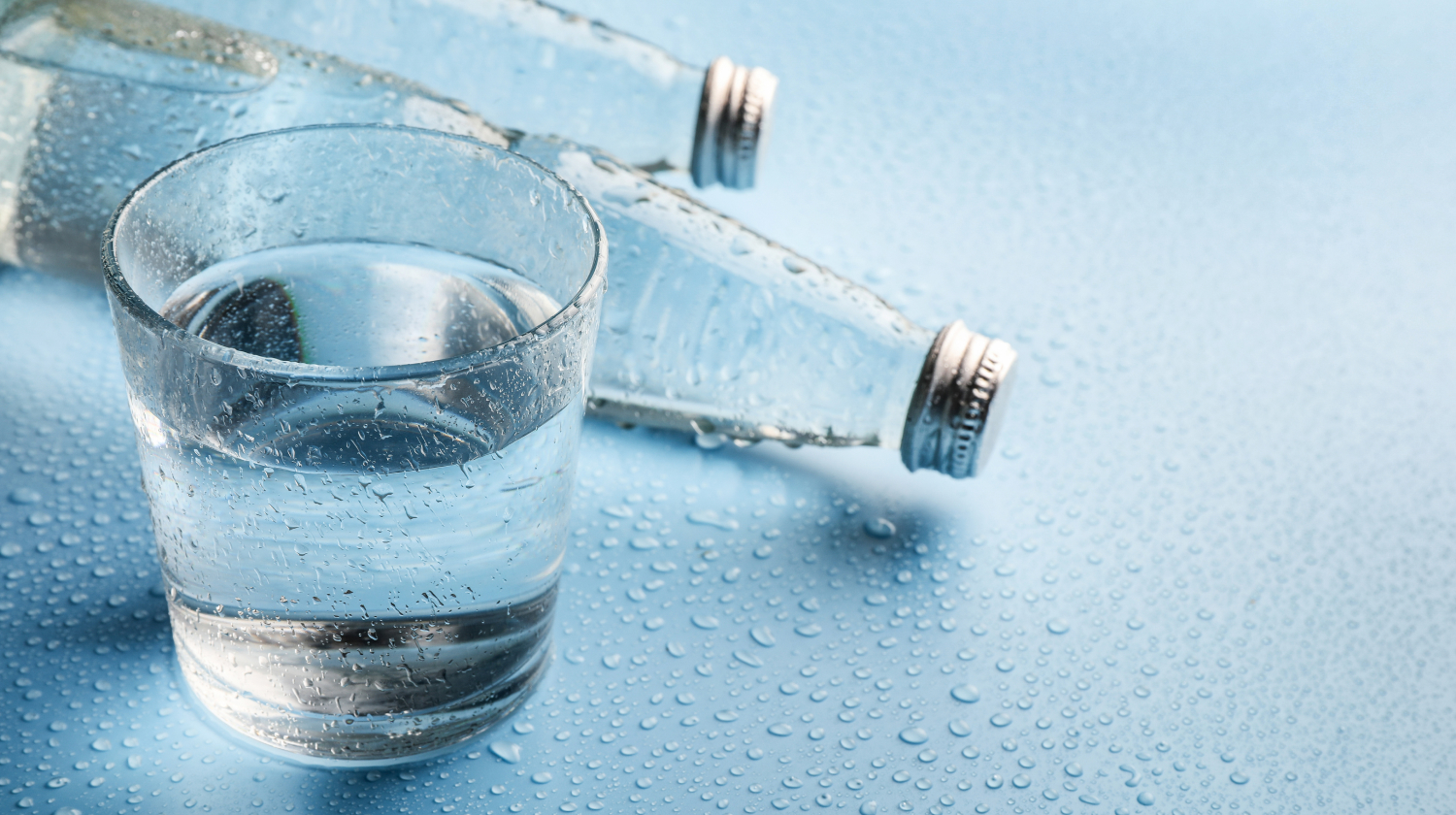
Sparkling mineral water is found in springs or natural wells that contain minerals like zinc, magnesium, calcium, and sodium. Since each sparkling mineral water brand comes from a different source, the minerals in each product will vary.
Of note, sometimes mineral water is naturally carbonated, and other times the manufacturer artificially produces carbon dioxide into the product to create carbonated and mineralized water.
Soda

Often called soda water or club soda, the Cleveland Clinic[7] states that this water contains potassium sulfate and potassium bicarbonate. Because of these additives, drinking a club soda can provide you with slightly more trace minerals than seltzer water. But regardless, soda water does hydrate you as well as plain water.
Of note, the sodium in club soda can add up. Per can, the average[7] amount of sodium is around 75 milligrams. Therefore, if you have a history of high blood pressure or need to monitor your sodium intake, switch to a lower sodium option such as seltzer. Of note, the sodium bicarbonate in soda water helps reduce the amount of acid in the water.
Tonic
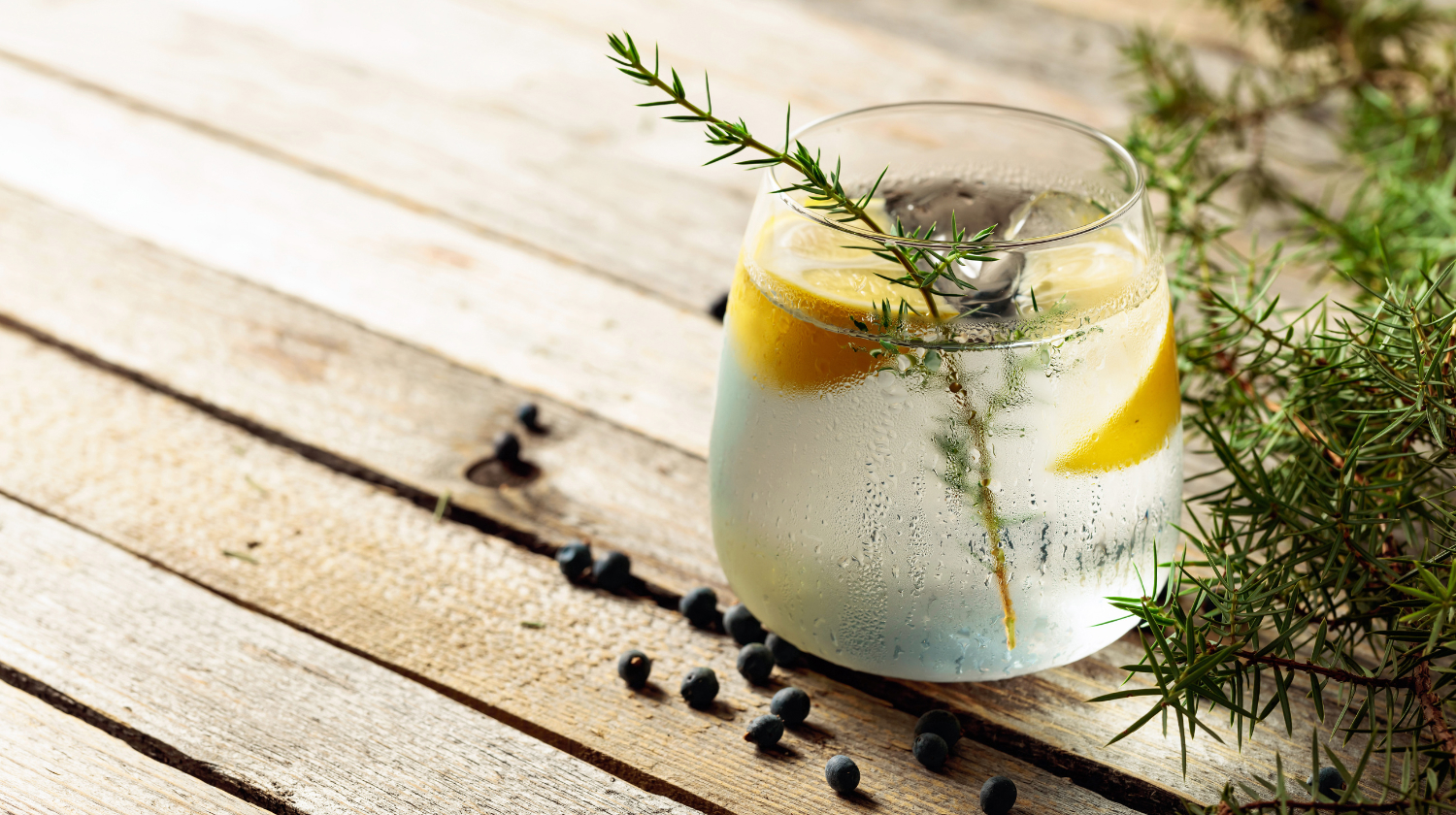
Tonic provides both carbon dioxide and minerals. Be aware that tonic water is made from quinine, the bark of a tree from South America. It has a distinctive bitter taste; thus, tonic waters often contain sweeteners to enhance the flavor and cut the bitterness. A typical can of tonic will be around 125 calories.[8]
Also, be aware of some adverse side effects that can occur with tonic water. For example, ingesting too much quinine[9] has been known to cause migraines, stomach upset, and other more severe side effects such as irregular heartbeat and damaged organs. Toxicity from quinine is called cinchonism and, besides the adverse effects above —and more — it can interfere with enzymes that take part in the function of many medications.
Hard Seltzer
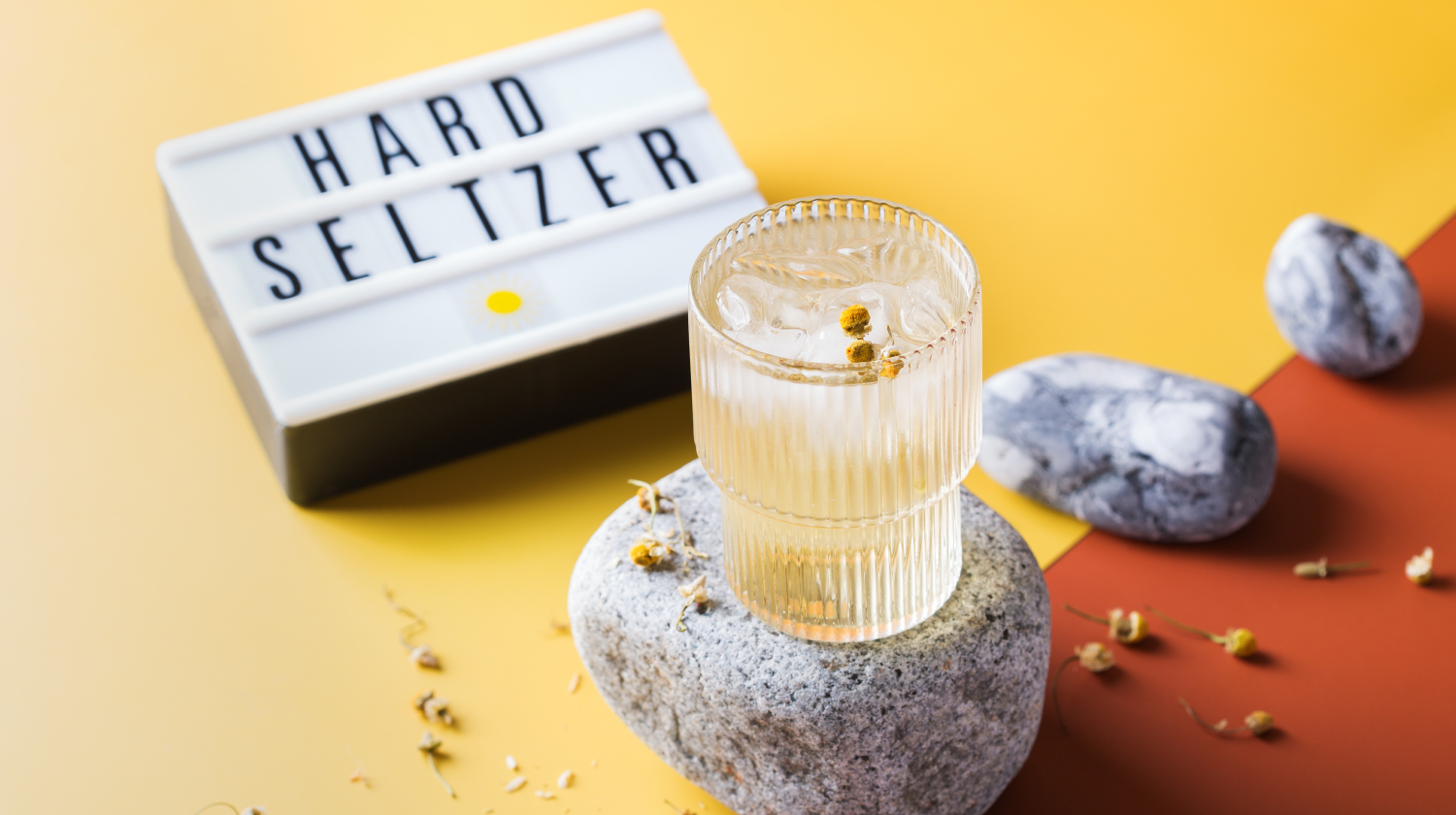
With the rise of hard seltzer popularity, many may wonder, does alcoholic seltzer water hydrate you? And the answer is no. Alcoholic[10] beverages, as a whole, are not a good choice for hydrating your body because alcohol has a diuretic effect, meaning it forces your body to excrete more water than you take in.
Therefore, to maintain hydration levels while drinking any alcoholic beverage, you should ingest plenty of water to maintain adequate hydration and help with the potential of a hangover. But you may be fighting a losing battle because alcohol stops your production of antidiuretic hormone; this means that there is no central control over urination.
There are also many people who feel that seltzer or carbonated water dehydrates you. However, unless alcohol is involved, this is a myth. There has been no research that indicates seltzer water is less hydrating than still water.
Sparkling Water Nutrition
Sparkling water is water with carbon dioxide; therefore, per the United States Department of Agriculture, it has no calories, protein, fat, or carbohydrates. However, some commercial products will add flavorings or sodium to ensure the product tastes good.
Nutritional Facts for Sparkling Water[11] (100 milliliters)
- Calories: 0.
- Protein: 0 grams.
- Fat: 0 grams.
- Carbohydrates: 0 grams.
Health Benefits Of Sparkling Water
Since seltzer water is simply carbonated water, the only real benefit is its ability to hydrate your body. However, when choosing what to drink, still or sparkling, the best option is going to be the one you will drink more of throughout the day.
Many believe the bubbles in seltzer water are more exciting than standard still water and thus will drink more. In addition, some people will use sparkling water interchangeably with still water throughout the day to enhance their ability to take in more hydration.
Of note, however, a few studies show that carbonation in fizzy water can sometimes increase the perception of thirst being satisfied when people are still dehydrated. For example, one study[12] in 2016 showed that people tended to drink less cold carbonated water even though they were technically dehydrated. This could be dangerous in specific populations, such as the elderly, who are chronically dehydrated.
Nevertheless, ounce-for-ounce, water, and seltzer water are both equally hydrating. And, if you are someone who finds still water boring or distasteful, then sparkling water might be a better option for you.
How Much Hydration Do You Need?
Per the United States Department of Agriculture, the average[13] American only drinks about 3.9 cups of water daily. That is way below the recommended daily amount mentioned by the Mayo Clinic[14] of 11.5 cups for women and 15.5 cups daily for men.
Of note, those numbers include water from beverages and food. 20% of your hydration requirements should come directly from food intake, whereas the rest should come from drinking beverages.
However, while these recommendations are a blanket statement for everyone, not everyone is the same. For example, some people may need less than eight glasses of water daily, while others may need more than fifteen.
Your hydration intake might need to be increased or changed depending on your activity levels and exercise habits. Other factors that make a difference in the amount of water you should drink include the temperature of your environment — dehydration is common with higher altitude environments — and whether you are ill, are experiencing vomiting and/or diarrhea, or if you are pregnant or breastfeeding.
Your physician or a registered dietitian can help you to ensure your personalized hydration needs. Still, a good rule of thumb to determine if you are adequately hydrated is if your urine is colorless — of note, certain medications can affect your urine color.
To ensure adequate hydration, make water your preferred choice of beverage. Also, try to reach for a glass of water before you engage in physical activity, in between meals, and if you feel thirsty. Adding ice to what you drink will add pure water.
Our blood and bodily fluids tend to reach a balance with the solid elements within them. These elements tend to attract water so as to affect this balance. The most notable example is salt; eating a high-salt meal will make you thirsty, which is the body’s way of getting your help in achieving this balance. A diet high in sugar will also attract more water, i.e., put you into a state of dehydration until you drink enough to create the right balance. The balance between liquid and solid in the body is called the osmotic gradient.[15]
The Bottom Line
Sparkling water can be a great addition to your daily hydration routine. Even better, you can try your own variety of natural flavors in the comfort of your home! Stir in fresh fruit, vegetables, or even herbs for additional flavor. For example, try cucumber mint or citrus raspberry; the possibilities are endless.
If you would rather purchase carbonated water from the store, remember to choose a product with no added sugar, artificial flavors, or sweeteners. Also, consider the quinine in tonic water. There are many different products on the market today, and if you can’t find one you enjoy, you can always experiment with different flavors at home. Additionally, if you are really into making your own fizzy water, you can now purchase machines to add in the carbon dioxide at home, and thus you can save money by making your own seltzer water — not to mention knowing exactly what is in what you’re drinking.
The bottom line is that seltzer water is an excellent choice for staying hydrated. So choose from mineral, sparkling, or even club water for a change from still water and start getting hydrated today.
+ 15 sources
Health Canal avoids using tertiary references. We have strict sourcing guidelines and rely on peer-reviewed studies, academic researches from medical associations and institutions. To ensure the accuracy of articles in Health Canal, you can read more about the editorial process here
- Pepsicopartners.com. (2017). Why is sparkling water so big right now | Beverage Trends | Tips & Trends | PepsiCo Partners. [online] Available at: https://www.pepsicopartners.com/pepsico/en/USD/article/Sparkling-Water
- Ganio, M.S., Armstrong, L.E., Casa, D.J., McDermott, B.P., Lee, E.C., Yamamoto, L.M., Marzano, S., Lopez, R.M., Jimenez, L., Le Bellego, L., Chevillotte, E. and Lieberman, H.R. (2011). Mild dehydration impairs cognitive performance and mood of men. British Journal of Nutrition, [online] 106(10), pp.1535–1543. doi:10.1017/s0007114511002005.
- Maughan, R.J., Watson, P., Cordery, P.A., Walsh, N.P., Oliver, S.J., Dolci, A., Rodriguez-Sanchez, N. and Galloway, S.D. (2015). A randomized trial to assess the potential of different beverages to affect hydration status: development of a beverage hydration index. The American Journal of Clinical Nutrition, [online] 103(3), pp.717–723. doi:10.3945/ajcn.115.114769.
- Eatright.org. (2022). How Much Water Do You Need? [online] Available at: https://www.eatright.org/health/essential-nutrients/water/how-much-water-do-you-need
- Gonzalez Viejo, C., Torrico, D.D., Dunshea, F.R. and Fuentes, S. (2019). Bubbles, Foam Formation, Stability and Consumer Perception of Carbonated Drinks: A Review of Current, New and Emerging Technologies for Rapid Assessment and Control. Foods, [online] 8(12), p.596. doi:10.3390/foods8120596.
- kaputk (2022). Is Sparkling Water Good for You? [online] Cleveland Clinic. Available at: https://health.clevelandclinic.org/is-sparkling-water-healthy/
- Popkin, B.M., D’Anci, K.E. and Rosenberg, I.H. (2010). Water, hydration, and health. Nutrition Reviews, [online] 68(8), pp.439–458. doi:10.1111/j.1753-4887.2010.00304.x.
- Usda.gov. (2023). FoodData Central. [online] Available at: https://fdc.nal.usda.gov/fdc-app.html#/food-details/171869/nutrients
- Moshirfar, M., Somani, S.N., Shmunes, K.M. and Ronquillo, Y.C. (2020). Will Tonic Water Stop My Eyelid Twitching? Clinical Ophthalmology, [online] Volume 14, pp.689–691. doi:10.2147/opth.s235895.
- Hobson, R.M. and Maughan, R.J. (2010). Hydration Status and the Diuretic Action of a Small Dose of Alcohol. Alcohol and Alcoholism, [online] 45(4), pp.366–373. doi:10.1093/alcalc/agq029.
- Usda.gov. (2023). FoodData Central. [online] Available at: https://fdc.nal.usda.gov/fdc-app.html#/food-details/2040965/nutrients
- Peyrot des Gachons, C., Avrillier, J., Gleason, M., Algarra, L., Zhang, S., Mura, E., Nagai, H. and Breslin, P.A.S. (2016). Oral Cooling and Carbonation Increase the Perception of Drinking and Thirst Quenching in Thirsty Adults. PLOS ONE, [online] 11(9), p.e0162261. doi:10.1371/journal.pone.0162261.
- 7 water intakes 0508. (n.d.). [online] Available at: https://www.ars.usda.gov/ARSUserFiles/80400530/pdf/DBrief/7_water_intakes_0508.pdf.
- Mayo Clinic. (2022). How much water do you need to stay healthy? [online] Available at: https://www.mayoclinic.org/healthy-lifestyle/nutrition-and-healthy-eating/in-depth/water/art-20044256
- National Cancer Institute. (2023). NCI Dictionary of Cancer Terms. [online] Available at: https://www.cancer.gov/publications/dictionaries/cancer-terms/def/osmotic



